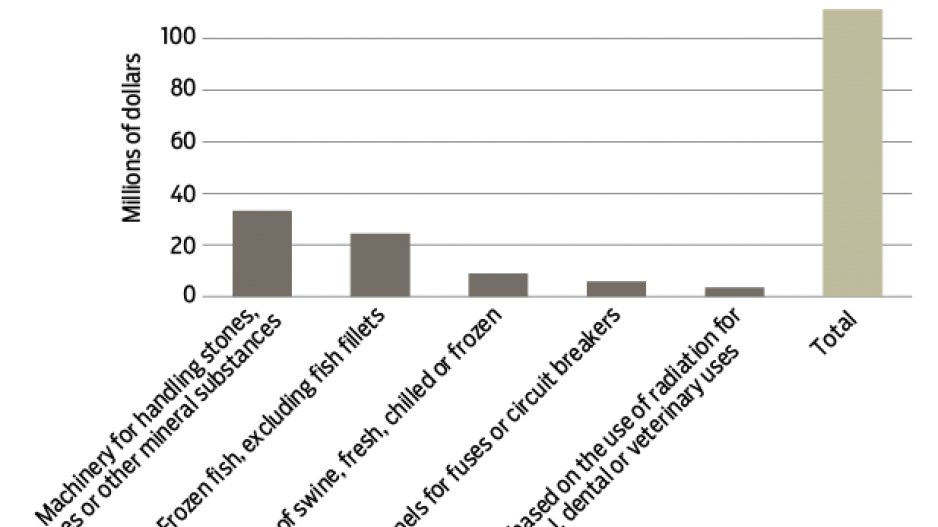Canada's recent economic and travel sanctions against Russia have prompted retaliatory import bans on a significant sector of Canadian agri-foods.
On August 6, the Kremlin announced bans on imports of beef, pork, poultry meat, fish, cheese, milk, vegetables and fruit from Australia, Canada, the European Union, the U.S. and Norway.
“It will affect Canadian businesses,” said Ben Arber, head of global trade and receivables finance at HSBC Bank Canada. “They will have to find new avenues for their exports.”
Pork, poultry and seafood factor most significantly for Canada's agri-food exports to Russia, with pork exports likely to be the most deeply affected.
“Canadian companies export nearly half a trillion dollars worth of goods every year,” said Arber. “Less than $1 billion, or around 1%, goes to Russia, and of that over half is in the pork industry.”
According to the Canadian Pork Council, the nation exports more than $3 billion worth of pork annually. In 2013, $253.9 million worth was sold to Russia.
In 2012, Manitoba led the country with $717.4 million in pork exports worldwide, which accounted for a significant portion of the country's total. According to that year's census data, Manitoba housed 22.5% of the country's pigs.
By contrast, B.C. was home to only 0.7% of the nation's hogs. The province's 627 farms raised fewer than 90,000 pigs, 90% of which were on Fraser Valley farms.
B.C.'s pork industry produces only 10% of what the province consumes and imports the rest. Pork exports to Russia, however, ranked third in 2013 at $8.9 million, suggesting B.C. trading houses and brokers who buy frozen product from countries like Brazil and then sell it to Russia play a significant role in the province's pork industry.
“Still, our industry here in B.C. is very small,” said Geraldine Auston, manager at BC Pork. “I worry for them. This is going to weaken prices while they continue to try to dig themselves out of a very big money pit.
B.C. struggles with high land and production costs fuelled by high feed prices resulting from a drought in the U.S. for the past couple of years.
As a result, many B.C. pig farmers have fallen deep into debt over the past few years. It was hoped that increased sales to countries such as Russia would help dig them out of that financial hole.
“It was looking to be a good year, but now it's going to be a difficult time,” said Auston. “But the prices have already begun to decline, and that is a direct fallout of surplus product.”
The U.S. is also subject to the Russian bans, which creates a competitive environment for making up those losses.
“It's probably going to be a race stumbling over each other to get those remaining markets,” said Auston, “and we'll be competing with countries like the U.S.”
Auston sees a correlation in the current situation, albeit on a smaller scale, to the 2008-09 U.S. financial crisis, which similarly forced Canadian businesses to increase trade with other partners in response to decreases in U.S. purchasing.
Geopolitical unpredictability such as that demonstrated in Russia underscores the need for well-conceived, carefully implemented, and expertly managed international trade policy, said Arber.
“Diversification of export markets is key.”
Industry versatility also relies on innovative marketing strategies.
“Our experience is that even smaller farmers in the meat industry have been fairly innovative at finding new markets and new clients.”
Arber cautioned that 12 months is a relatively long time in business, meaning it won't be feasible for businesses to simply bide their time. The financial impact of doing so would be too severe.
Both Arber and Auston agreed that the agri-foods industry has historically been capable of rising to the demands of changing markets.
Arber pointed to the exponential growth in pea and lentil exports to India over the last 20 years as a prime example.
He predicts a similar flexibility in the Canadian pork industry.
Arber added that the situation is aided by global market predictions.
“There is an amazingly positive 10-year outlook for global food demand, and that's very useful to the Canadian agri-foods base.”




